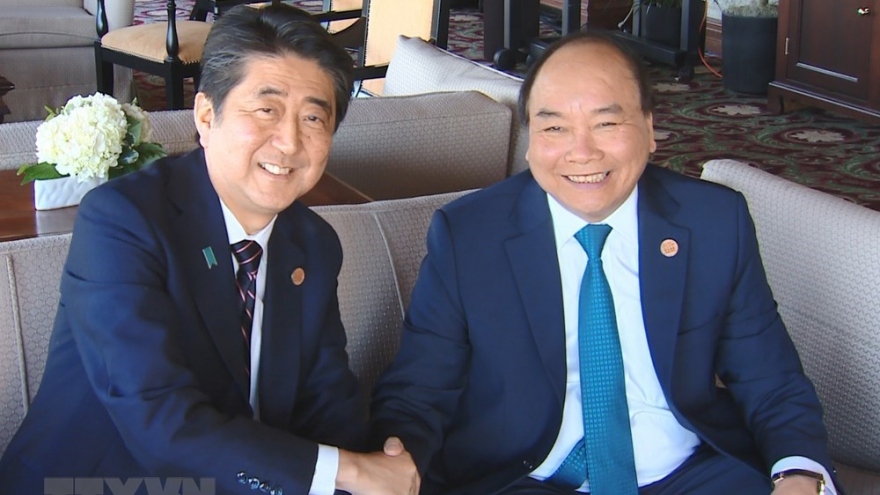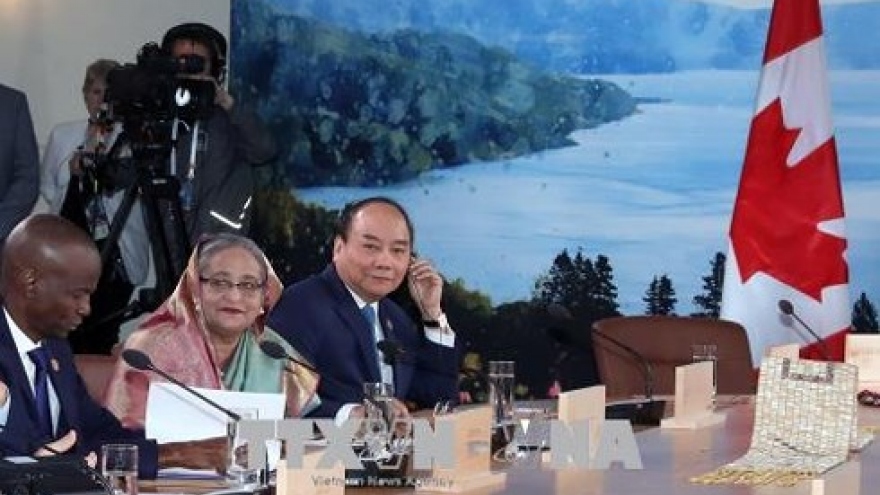They included a letter of intent on strategic partnership in science, technology and innovation between the Vietnamese Ministry of Science and Technology and the Quebec Research Funds; an MoU on a technical assistance package between the Airports Corporation of Vietnam and the National Bank of Canada; an MoU on training and research cooperation between Vietnam’s National Economics University and the University of Quebec in Montreal; and an MoU on business cooperation in the Smartclass Language Teaching Platform worth US$100 million between Hoang Thanh Trade and Technology Development Co. Ltd and Robotel Inc of Canada.
Earlier, opening the business roundtable, Vietnamese Minister of Planning and Investment Nguyen Chi Dung said Vietnam-Canada relations now have new opportunities when they upgraded their ties to a comprehensive partnership in 2017. Both are also active members promoting the signing of the Comprehensive and Progressive Agreement for Trans-Pacific Partnership (CPTPP), which creates a new-generation free economic bloc of 11 countries that make up 13% of the global GDP.
He noted Vietnam boasts advantages in terms of the geo-economic location, an abundant workforce, a vast market, the connectivity with the ASEAN region which is integrating extensively into the world economy through 11 free trade agreements (FTAs), an economy with dynamic development, and the Government’s efforts to improve the business climate and competitiveness. The country has been highly regarded by the international community and considered as an attractive investment destination.
Despite the fine political relationship, bilateral economic, investment and trade ties remain modest and haven’t matched potential, he said.
Vietnam hopes that Canadian businesses will invest in such fields as finance-banking, tourism services, real estate, energy, health care, education, infrastructure, and information technology through mergers and acquisitions, equitisation of State-owned enterprises, or public-private partnership. It is also building three special administrative-economic zones with especially competitive regulations, and this is a chance for Canadian firms, Dung added.
Meanwhile, the chief representative of the Canadian Chamber of Commerce in Vietnam (CanCham Vietnam) gave an overview of the investment potential and opportunities in Vietnam. Accordingly, the country’s advantages in attracting foreign investment include a strategic geographical location, stable economy and politics, a growing middle class, an expanding consumption market, competitive labour cost, attractive investment incentives, fast urbanisation, an open economy with many FTAs, and increasingly improved investment climate.
The CanCham representative said Vietnam will become a very attractive investment destination for foreign investors, including Canadian ones, in the coming time.



